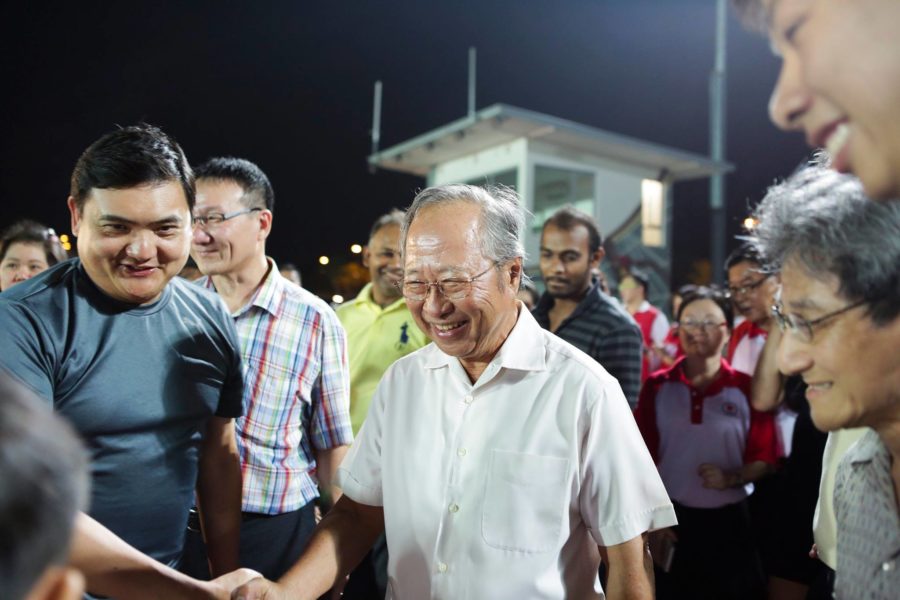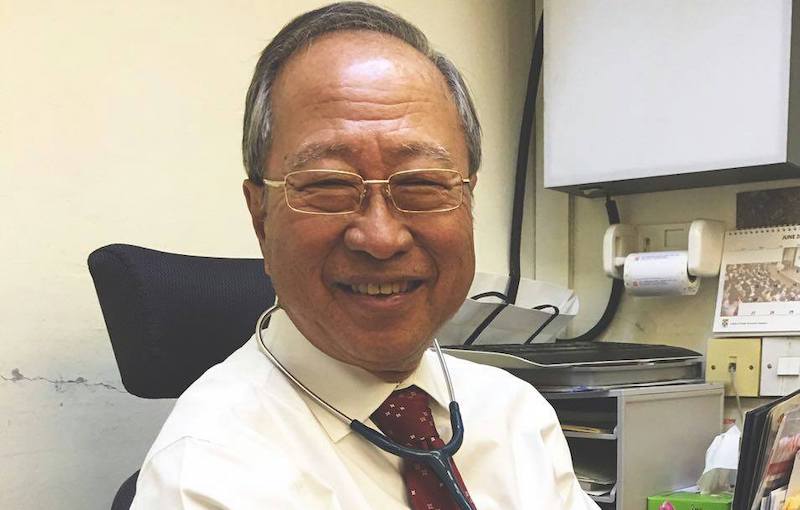The man who very nearly became Singapore’s president back in 2011 is back in business. After a period of hiatus from the political area, Dr. Tan Cheng Bock announced today that he’ll be taking on the next general elections with his own political party: the Progress Singapore Party (PSP).
The 78-year-old announced that he filed an application to the Registry of Societies to start a new political party. Alongside him are 12 other “like-minded Singaporeans”, including former members of the currently ruling People’s Action Party (PAP).
“Over the years, a group of us have been walking the ground, meeting many Singaporeans from all walks of life. In my conversations with them, I listened to their concerns, heard their fears and felt their pain,” Tan wrote.
“I felt a sense of duty to come forward and represent them in Parliament. So I decided to form a political party to add another voice in Parliament.”
The decision, according to Tan, was not without much deliberation. His team had considered other options such as joining or taking over current opposition parties, but in the end, the man decided that a new voice needed to be heard. He assured that he looks forward to working together with others in the opposition side, and will be putting aside any differences in the name of Singapore.
That’s not to say that the PSP is pretty much confirmed — they still have to wait for an approval from the Registry of Societies.
The mantra he keeps repeating is putting the country first before the party or self. He also knows that at his age, he has a narrow window of time to mentor and develop future politicians. Progress in society, he says, is key.
“We want to build a compassionate and truly democratic Singapore where good values and people matter. Freedom of choice and free speech without fear must be defended.”
Dr. Tan Cheng Bock

Reactions to his announcement have been highly positive. Which is not a surprise, considering that he’s popularly considered a capable and caring figure who actually has a wealth of experience in government.
- Became a Member of Parliament for the Ayer Rajah Single Member Constituency while running for office under the People’s Action Party in 1980.
- Served as the Chairman of the Government Parliamentary Committees for education, national development, and the environment.
- Served as a member of the Government Parliamentary Committees for communications, defence, and foreign affairs.
- Elected a member of the highest ruling committee within the ruling party: the PAP Central Executive Committee.
- Served as Chairman of the Jurong East Town Council, and subsequently, the West Coast-Ayer Rajah Town Council.
- Led a team of MPs to fight for the use of the Central Provident Fund for education. This resulted in the CPF Education Scheme, which allows citizens to use their retirement savings pay for their own, children’s or spouse’s subsidized tuition fees at approved educational institutions.
- Argued that the Singapore government should be toning down its explicit calls for foreign talent in local key sectors following the 1997 Asian financial crisis. Tan suggested that the government should be reassuring its citizens that they are prioritized. This earned him a scolding from the late prime minister Lee Kuan Yew.
- Exited the political arena, deciding not to run in the 2006 general election. Continues to involve himself in charity work.
- In 2011, resigned from the PAP to run for president — candidates have to be nonpartisan. Promises to promote multiracialism and believes that the presidency must be above politics, and not be aligned with any political party.
- After the polls closed and the votes were tallied (and recounted), it was revealed that he lost the presidential election by a 0.35 percent margin to Tony Tan. Cheng Bock had 34.85 percent of the votes, while Tony held 35.20 percent.
- He declared his intention to run for president again, confident that he’d win. Months after he made the announcement, the government decided that the next presidential election would be reserved only for Malay candidates.
- Tan launched a constitutional challenge against the reserved election to the High Court. His case was dismissed.
- In December 2018, retired from practising medicine. Insists that the country and the people’s welfare continue to be his top priority. “I always say that medicine is my love, but politics is my calling.”




